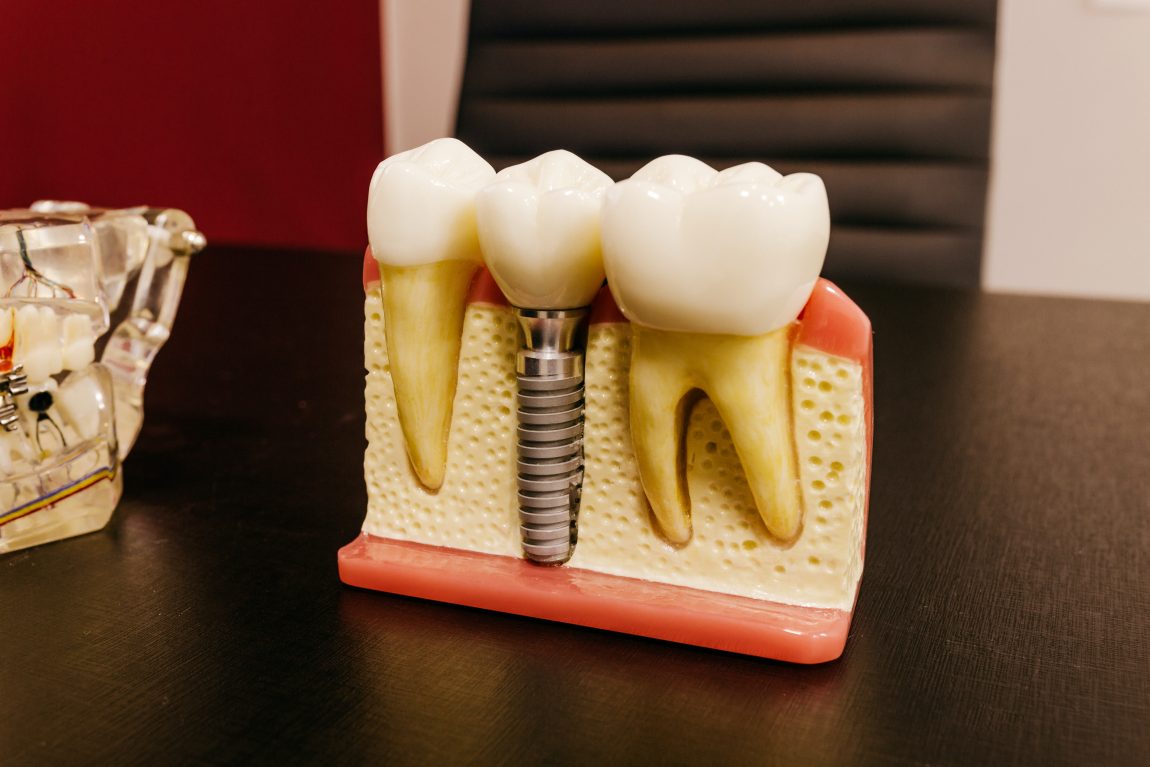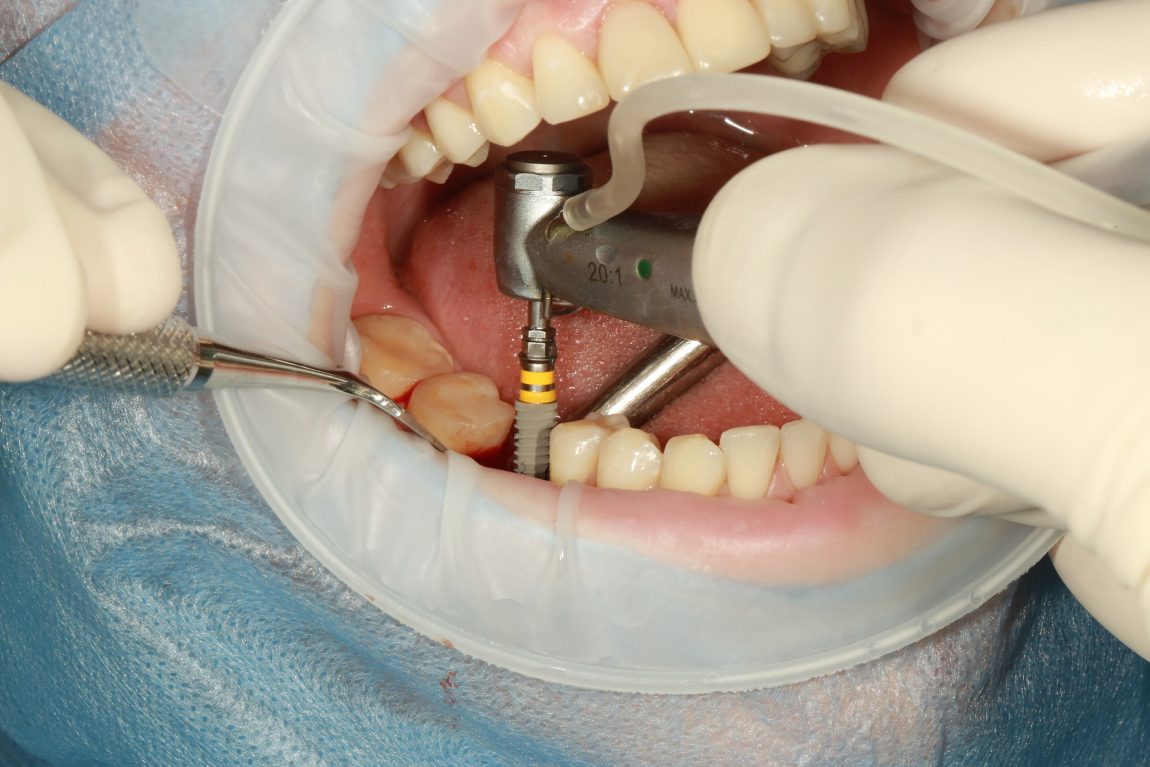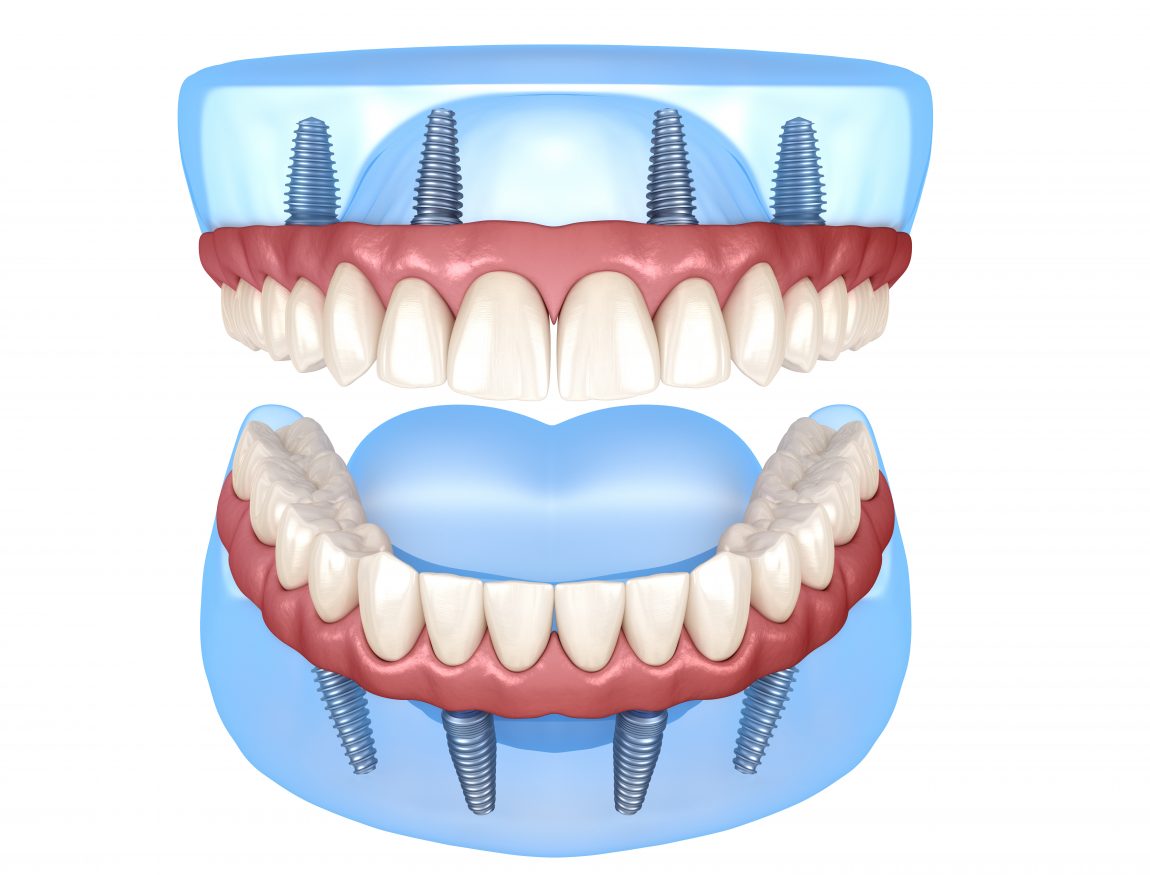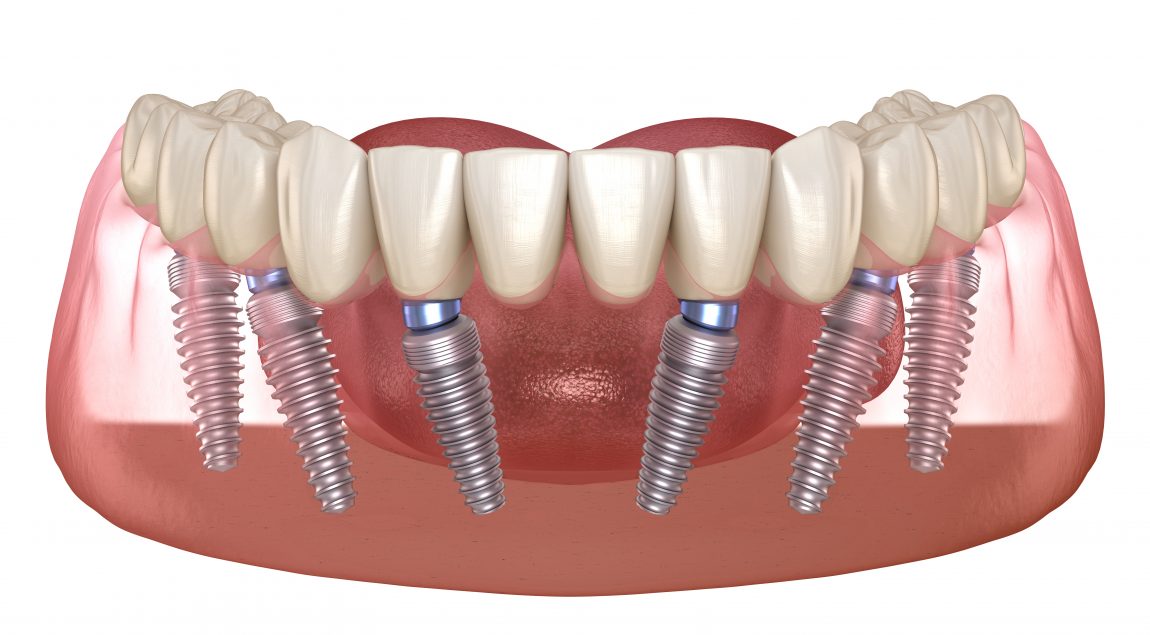Dental implants are a rising trend in the realm of tooth and jaw care, but as it is a technique still rising in popularity and efficacy, people often have questions regarding it. Let’s address a lot of the prospective questions regarding dental implants now.
What Are Dental Implants?
 Dental implants are artificial replacements for jaws with multiple missing or diseased teeth. They not only provide a restored smile that is indistinguishable from a natural one but they are also rooted to the jaw bone with small yet powerful titanium posts, which are, over time, made more stable by the assimilating bone tissue around them.
Dental implants are artificial replacements for jaws with multiple missing or diseased teeth. They not only provide a restored smile that is indistinguishable from a natural one but they are also rooted to the jaw bone with small yet powerful titanium posts, which are, over time, made more stable by the assimilating bone tissue around them.
Who Needs Dental Implants?
Many people have either needed to have teeth removed due to dental health issues or suffering trauma resulting in tooth loss. When teeth are missing, the gaps don’t just offer unpleasant optics, they also leave more space for other teeth to start shifting their course. When teeth protrude from the gums, they tend to force other teeth to keep their natural downward (or upward) growth trajectory, but with gaps, teeth have more room to grow in directions that are not optimal.
Humans use teeth to form certain sounds during speech, so missing teeth also cause the quality of speech to change. As people get older, missing teeth also become a persistently worse problem when it comes to chewing as well, making it hard to consume some former food favorites that require extensive chewing before being swallowed.
Dental implants address these issues by providing a firm, natural-looking replacement for missing teeth, allowing for a person, irrespective of their age, to be able to speak, chew, and look in the best possible way, without a high risk of damage to any dental area.
Types of Dental Implants
There are a few types of dental implants available, each suited to the particular dental situation of a patient.
Traditional Implants
 When a person is missing a tooth, the common treatment has been to insert a bridge, which is in essence a tooth replacement that uses other teeth around it to hold the substitute in place. However, there are disadvantages to this method because the bridge does rely on other teeth for stability.
When a person is missing a tooth, the common treatment has been to insert a bridge, which is in essence a tooth replacement that uses other teeth around it to hold the substitute in place. However, there are disadvantages to this method because the bridge does rely on other teeth for stability.
An implant entails drilling a titanium base into the jaw bone and stationing a sturdy crown in the form, shape, and likeness of the missing tooth. However, traditionally implants are not performed for a replacement of a single tooth, as it is a more suitable treatment for people with multiple missing teeth.
All On 4 Dental Implants
 Before implants became a viable dental treatment, people with multiple or all teeth missing in a row of teeth traditionally had dentures. Even when implants became a viable option, their cost was often prohibitive.
Before implants became a viable dental treatment, people with multiple or all teeth missing in a row of teeth traditionally had dentures. Even when implants became a viable option, their cost was often prohibitive.
However, the process of dental implantation across the jawline involves putting in several titanium “roots” and setting the implanted teeth on top of them. This means that an entire row of teeth will be held by bases made from the strongest metal, assuring great stability and durability. The difference between the all on 4 dental implants from traditional ones is that these are meant for the replacement of an entire row of teeth.
All On 6 Dental Implants
 All on 6 dental implants are similar in nature to all on 4 dental implants, except that instead of basing the entire row on 4 titanium roots, there are 6 implanted in the jaw bone. While 4 implants provide a great option for a stationary row of teeth, all 6 implants assure even greater stability and firmness of the new row of teeth. With more implants, the pressure on the jaws is reduced because there is a more even distribution on the basis on which the row of teeth now sits.
All on 6 dental implants are similar in nature to all on 4 dental implants, except that instead of basing the entire row on 4 titanium roots, there are 6 implanted in the jaw bone. While 4 implants provide a great option for a stationary row of teeth, all 6 implants assure even greater stability and firmness of the new row of teeth. With more implants, the pressure on the jaws is reduced because there is a more even distribution on the basis on which the row of teeth now sits.
Benefits of Full Mouth Dental Implants
Undergoing the procedure to install full mouth dental implants in one day carries several important benefits.
● The entire procedure is completed through one session, eliminating the need for multiple follow-ups and having a full mouth of teeth restored in a day.
● The sooner all implants are put in, the less bone density diminishment the patient has a chance to experience. When bone density is weak, implants will require bone grafts so that the jawline can more aptly hold the titanium roots.
● Unlike dentures, maintenance of implants is akin to those of real teeth. Dentures need to be removed and cleaned thoroughly, while implanted crowns can be brushed and flossed like regular teeth.
● It is a great solution for formally untreatable dental situations.
● The cost of doing everything in one day tends to be less as many dental professionals offer discounts for having everything done in one session (not including preliminary prep-work and evaluation).
Same-Day Dental Implants
With same-day implants, patients can get the process of a complete replacement done faster at a potentially reduced cost over those involving multiple visits. By placing all implants at once, there does not need to be wait time in-between various parts of the mouth assimilating to the condition. Instead, everything is done, so that both the jaw and the patient can begin to adjust accordingly.
Dental Implantation Cost
 The process of installing dental implants requires skill, experience, and precision. There is work involved in customizing the process to the particular patient as well. All of this adds up the costs of this type of dental service, so the procedures are often quite substantial financially. Because every patient’s situation is vastly different, there is no one set cost for dental implants, so the best one can do is consider average costs.
The process of installing dental implants requires skill, experience, and precision. There is work involved in customizing the process to the particular patient as well. All of this adds up the costs of this type of dental service, so the procedures are often quite substantial financially. Because every patient’s situation is vastly different, there is no one set cost for dental implants, so the best one can do is consider average costs.
For a simple implant procedure, the process can cost around $12,000. For those getting all on 4 dental implants or all on 6 dental implants, the treatment is likely to be more around the $25,000 mark. For some patients the cost is higher, going up to as much as $50,000. This is typically the case when there is a lot of additional prep or surgical work involved, such as bone grafting for jawbones that do not have sufficient density.
The cost also varies significantly based on where the procedure is received. In certain regions, the estimated costs could be less, though that does not necessarily mean that the quality is lower. There are simply different economic factors at play.
All On 4 Dental Implant Cost
As noted, the all on 4 dental implant procedure average cost is around $25,000, though bone grafting can be a factor in the cost level as well.
All On 6 Dental Implant Cost
Because 6 titanium bases will incur a higher cost than 4, as the procedure itself will require more detailed attention and precision, the costs associated with it are higher, averaging closer to $30,000 to $33,000.
Benefits of Implant Dentistry In Ukraine
 The quality of dental care in Ukraine is comparable to the best dental services across the rest of Europe. Many dental providers operating in Ukraine are actually supplanted from other countries. In either case, most dental clinics employ seasoned professionals who have received extensive dental education and are adequately equipped to not only work with the technology required for implantation but also maintain a contemporary awareness of new and updated devices and methods used for the process.
The quality of dental care in Ukraine is comparable to the best dental services across the rest of Europe. Many dental providers operating in Ukraine are actually supplanted from other countries. In either case, most dental clinics employ seasoned professionals who have received extensive dental education and are adequately equipped to not only work with the technology required for implantation but also maintain a contemporary awareness of new and updated devices and methods used for the process.
Beyond that, the cost of dental implants in Ukraine is significantly less than in other countries, though this does not speak to any diminished quality of care. Ukraine simply is a country where the cost of living is lower, therefore the services performed cost less as well. It is no wonder that over half of financial tourists to Ukraine are there for a variety of medical and dental services.
Average Cost Of Dental Implants
While the dental scenario for every patient needing dental implants varies, causing the estimated cost to be hard to pinpoint, the costs of dental implants in Ukraine are greatly reduced to those in other countries. On average, a simple, one tooth implant will cost around $350, while All On 4 dental implants cost is between the $4,100 and $4,300 mark. All On 6 dental implant cost is slightly higher, coming into around $5,000.
Ukraine Sightseeing
 Before dental implants can be installed, there is some consultation, prep work, evaluation, and time for all necessary components for the procedure to be delivered required. This means that financial travelers to Ukraine will need to plan for at least a multi-day visit to undergo all of the necessary parts of the dental implantation process.
Before dental implants can be installed, there is some consultation, prep work, evaluation, and time for all necessary components for the procedure to be delivered required. This means that financial travelers to Ukraine will need to plan for at least a multi-day visit to undergo all of the necessary parts of the dental implantation process.
This leaves an ample amount of time to take in the sights of this historically rich and beautiful country. Regardless of the city performing the treatment, Ukrainian cities like Odesa and Kyiv offer many great sightseeing destinations. Much like the cost of the reduced dental treatments, booking various tours and visiting museums is also a highly affordable and personally gratifying endeavor.

Add Comment